In this episode, I am joined by the eminent historian of science and religion, Peter Harrison. We examine how we’ve inherited a distorted narrative about the relationship between science and religion. Rather than the conflict narrative we’re accustomed to, Harrison reveals that science and religion are not historical foes, and that modern Western sciences are actually built on theological assumptions. The real game-changer comes from tracing how Protestant reforms—notably the attack on allegorical readings of scripture and the demand for each individual to justify their belief— fundamentally transformed how we read both Scripture and nature, eventually leading to our impoverished, utilitarian view of the natural world. Harrison shows how concepts we think are timeless – like “belief,” “supernatural,” and even “religion” itself – are modern inventions with specific histories, and how understanding these genealogies can help us see that many of our contemporary problems in science-religion dialogue are artifacts of the categories themselves rather than real conflicts in the world. The conversation ultimately suggests that by understanding how we arrived at our current conceptual frameworks, we might find new ways forward that don’t trap us in the either/or thinking that dominates so much of contemporary debate.
Dr. Peter Harrison is a former Andreas Idreos Professor of Science and Religion in the University of Oxford, and Emeritus Professor of the History of Science at the University of Queensland, where he was also an Australian Laureate fellow and Founding Director of the Institute for Advanced Studies in the Humanities (IASH). His many celebrated books include The Fall of Man and the Foundations of Science, The Cambridge Companion to Science and Religion, The Territories of Science and Religion, & his newest book Some New World: Myths of Supernatural Belief in a Secular Age.
“Democracy in Tension” Online Summit - Register Now!
Democracy today faces profound challenges – polarization, inequality, populist authoritarianism, and widespread cynicism are eroding the foundations of democratic life. Yet, what if democracy's greatest strength lies not in eliminating these tensions, but in productively embracing them?
Reimagine democracy as a space for productive tension—not uniform agreement.
Engage new tools to resist polarization, cynicism, and political despair.
Explore how religion and democracy can coexist in pluralistic societies.
Transform political enemies into adversaries through agonistic engagement.
Confront the forces eroding democratic life with bold, practical insight.
Connect with scholars and citizens committed to revitalizing democratic imagination.
ASYNCHRONOUS CLASS: All lectures will be released on Monday, July 28th. You can participate fully without being present at any specific time. Replays are available on the Class Resource Page.
COST: A course like this is typically offered for $250 or more, but we invite you to contribute whatever you can (including $0) to help make this possible for everyone!
Join Us For Theology Beer Camp!
Theology Beer Camp is a unique three-day conference that brings together of theology nerds and craft beer for a blend of intellectual engagement, community building, and fun. This event features a lineup of well-known podcasters, scholars, and theology enthusiasts who come together to “nerd out” on theological topics while enjoying loads of fun activities.
Guests this year include John Dominic Crossan, Kelly Brown Douglas, Philip Clayton, Stacey Floyd-Thomas, Jeffery Pugh, Juan Floyd-Thomas, Andy Root, Grace Ji-Sun Kim, Noreen Herzfeld, Reggie Williams, Casper ter Kuile, and more!





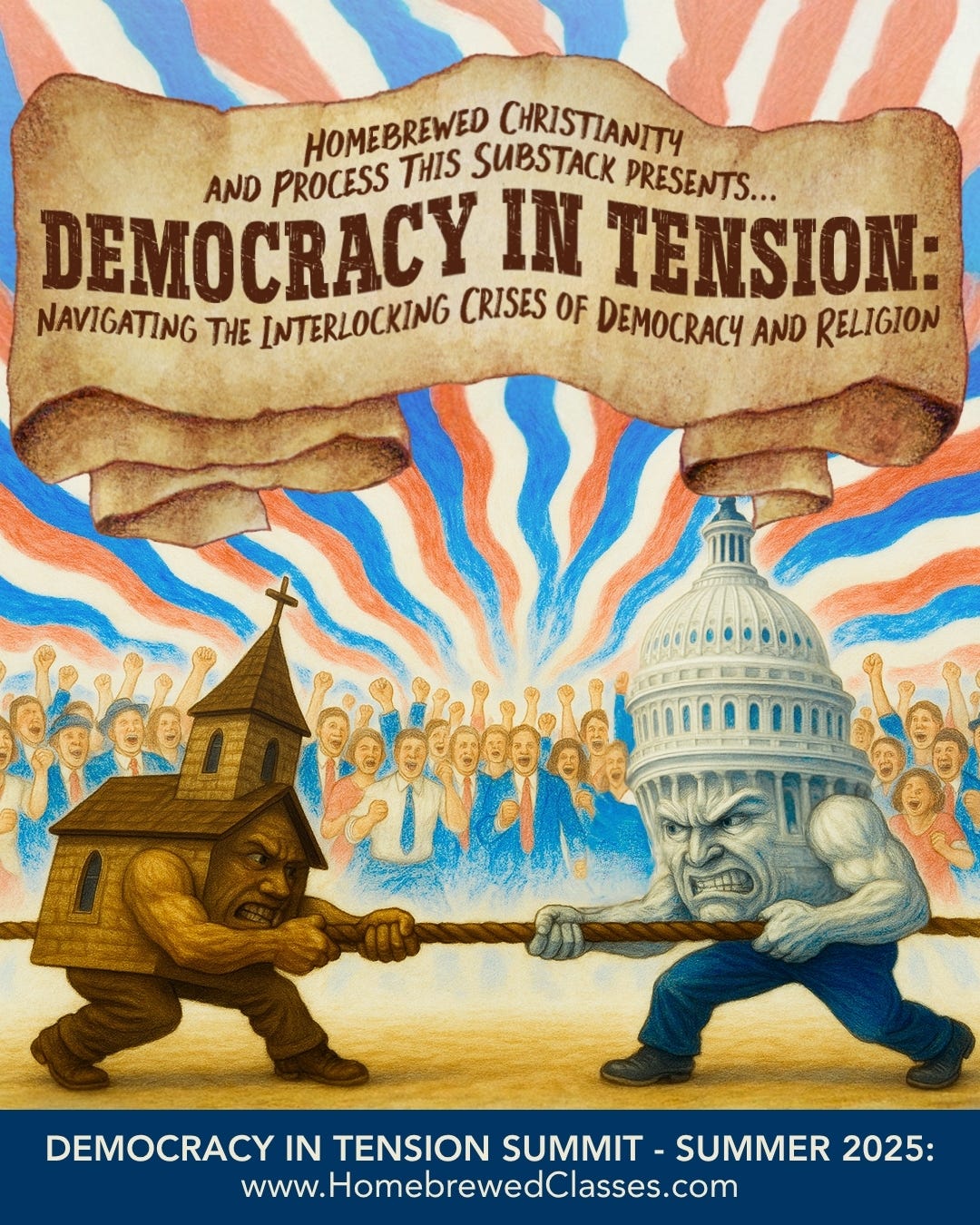
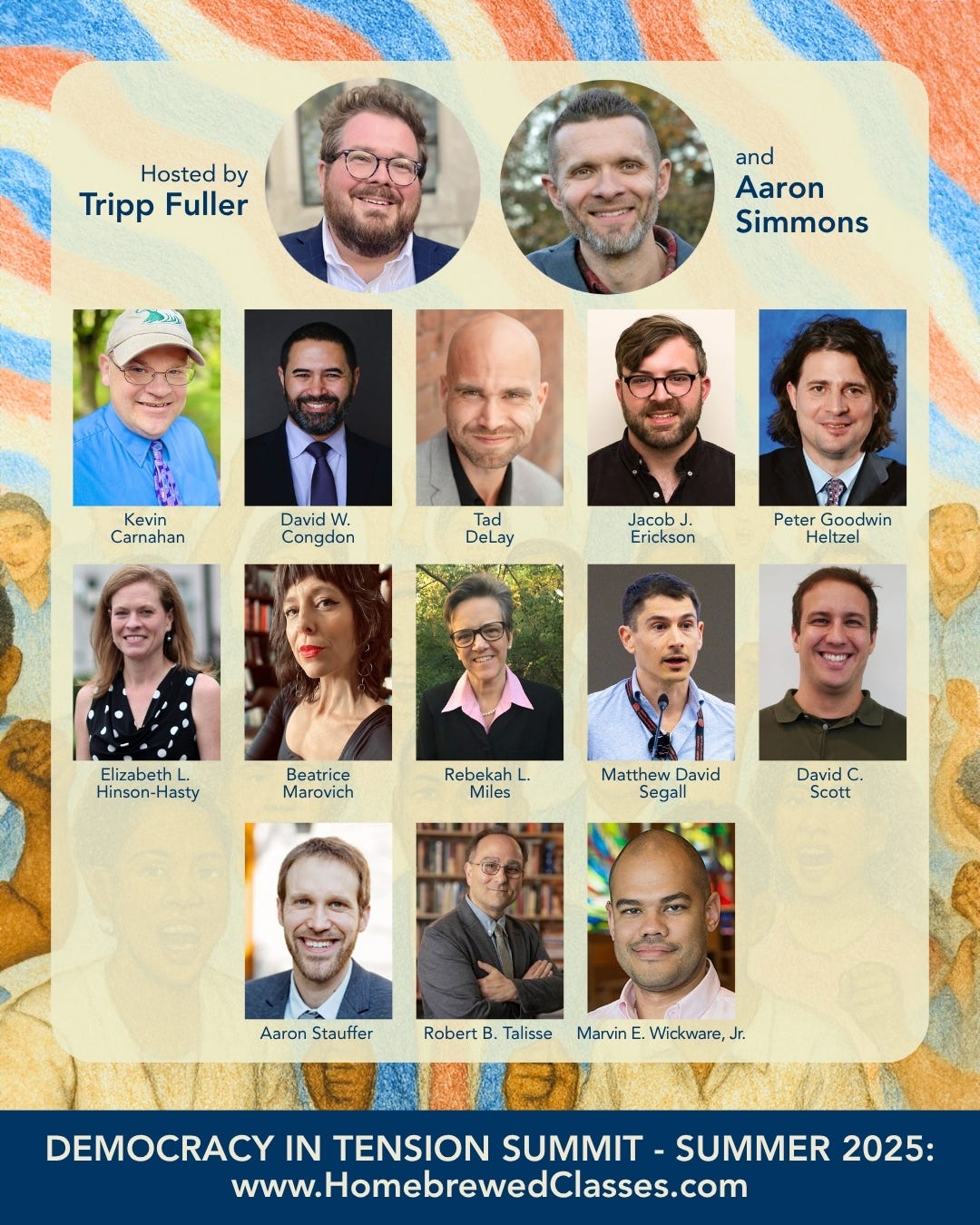
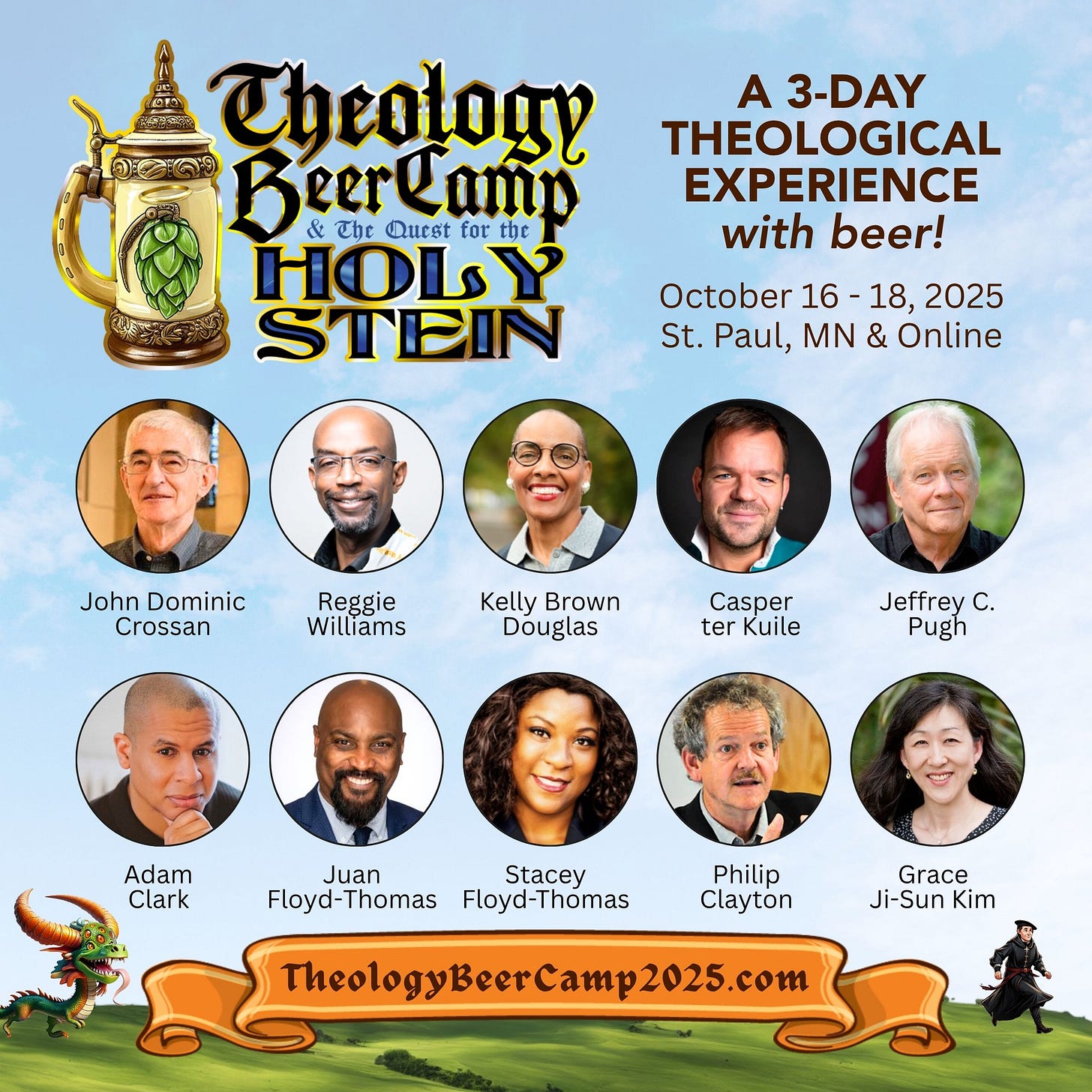
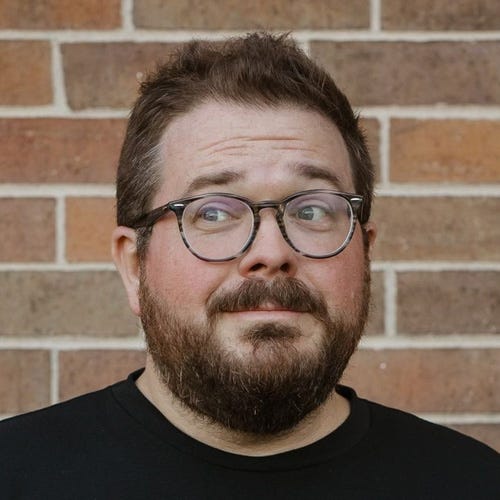

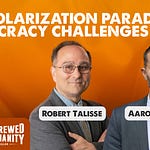


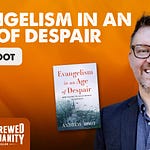
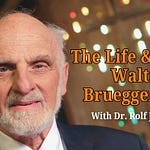


Share this post